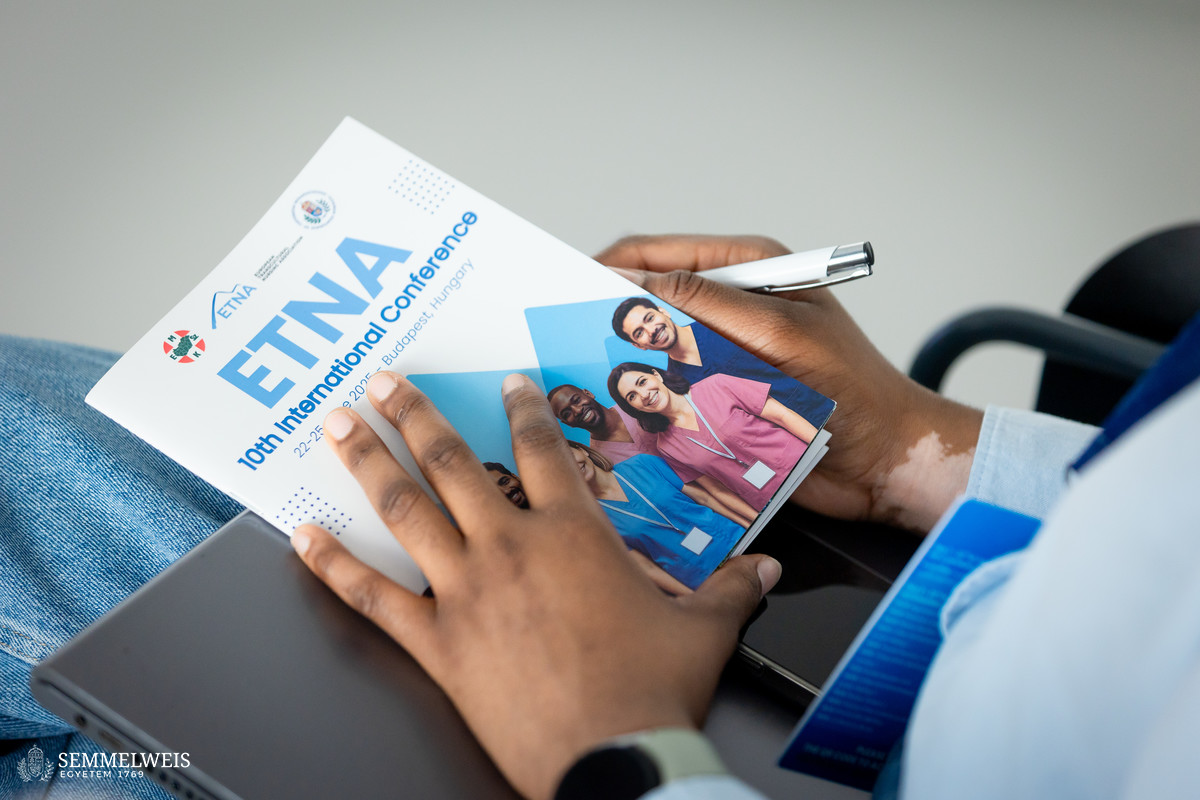
Semmelweis University in Hungary continues to strengthen its reputation as a leading institution in healthcare education by hosting the recent international conference on transcultural nursing. This notable event, organized by the Faculty of Health Sciences (ETK), brought together global experts, students, and professionals to discuss the integration of cultural competence in nursing practice. As Hungary’s top medical university, Semmelweis University is committed to advancing healthcare through international collaboration and innovative educational practices.
Advancing Healthcare Education through International Engagement
The transcultural nursing conference at Semmelweis University marked a significant milestone, coinciding with the 20th anniversary of the European Transcultural Nursing Association (ETNA) and the 50th anniversary of ETK. The event attracted around 90 participants from 24 countries spanning North America, Africa, Asia, and Europe, reflecting the university’s global outlook and dedication to multicultural healthcare education.
During the conference, experts shared insights on how cultural diversity influences nursing practice and healthcare delivery. The event highlighted the importance of understanding diverse patient backgrounds to ensure culturally sensitive care—an increasingly critical aspect of modern healthcare systems worldwide. Attendees explored topics ranging from social care policies, gender and sexuality issues, age-specific care, to refugee and migrant health challenges.
The Role of Semmelweis University in Transcultural Nursing
Semmelweis University has a long-standing tradition of integrating transcultural nursing into its curricula. Since 2006, the subject has been a core component of both BSc and MSc nursing programs. Dr. Zoltán Balogh, Vice-Dean of ETK, emphasized that the university’s commitment to cultural competence stems from decades of experience and international collaboration.
Balogh highlighted that the university’s nursing education reflects the diverse needs of its patient populations. The university’s training incorporates cultural awareness, language skills, and adaptation strategies, which prepare students for effective practice in multicultural settings. For instance, the curriculum includes modules on local customs, religious beliefs, and health practices from various cultural backgrounds, fostering an inclusive approach to patient care.
Incorporation of Artificial Intelligence and Digital Tools
Recent advancements in healthcare technology have also influenced nursing education at Semmelweis University. Speakers discussed how artificial intelligence (AI), digital simulations, and e-learning platforms are increasingly used to teach international students and bolster clinical skills. AI applications in clinical decision-making and patient management are being integrated into teaching modules, equipping future nurses with essential digital competencies.
Moreover, the university employs AI-driven simulation tools to train students in handling complex, culturally diverse patient scenarios. This approach enhances preparedness, enhances cultural sensitivity, and promotes adaptable clinical practices.
International Collaboration and Student Diversity
Seemelweis University’s international program attracts students from over 30 countries, including the United States, Indonesia, Chile, Norway, and beyond. These students bring their unique cultural perspectives, enriching the learning environment and fostering cross-cultural understanding.
Dr. Balogh pointed out that understanding students’ diverse backgrounds helps shape effective teaching strategies. The university offers orientation courses where students present their cultural norms related to health, illness, and social practices. This exchange not only broadens students’ worldview but also enhances their ability to provide effective, culturally appropriate care.
Additionally, the university emphasizes the importance of language proficiency and cultural awareness in clinical internships. International students participate in practical training within Hungary’s multicultural patient populations, further developing their intercultural skills.
Enhancing Practical Skills through Technology
Leveraging AI and digital tools, Semmelweis University offers specialized courses for clinical simulation training. These programs allow students to practice dealing with patients of different cultural backgrounds in virtual environments, ensuring they gain necessary skills before real-world practice.
The university’s incorporation of these technologies demonstrates a commitment to modern, inclusive education and prepares nurses to meet the challenges of globalized healthcare settings.
Future Perspectives: Cultural Competence in Healthcare
Looking forward, Semmelweis University aims to expand its role as a pioneer in transcultural nursing. Its efforts will include developing new curricula, fostering international research collaborations, and introducing innovative digital tools for teaching and practice.
The university also plans to increase opportunities for students to participate in international exchanges and internships, promoting firsthand experience in diverse healthcare environments. Such initiatives are crucial as healthcare systems worldwide grapple with increasing multicultural populations and the need for culturally competent care.
As Dr. Balogh stated, the university’s strategic vision emphasizes understanding oneself and others—an essential foundation for effective transcultural nursing. The goal is to produce healthcare professionals who are both culturally aware and technologically adept, capable of delivering equitable and personalized care in a globalized world.
Join Semmelweis University’s Growing International Community
For prospective students interested in embracing this progressive approach to nursing education, Semmelweis University offers pathways to study in multiple languages and participate in cutting-edge international programs. The university’s multicultural environment, combined with its innovative curriculum and strong research focus, creates an ideal setting for future healthcare leaders.
Interested candidates can submit their applications or learn more about programs, scholarships, and international mobility opportunities through the university’s official channels. Exploring these options can lead to a rewarding career in transcultural nursing, grounded in quality education and cultural sensitivity.
Conclusion
Semmelweis University’s hosting of the international transcultural nursing conference underscores its dedication to addressing global healthcare challenges through education and collaboration. By fostering an inclusive, technologically advanced, and culturally sensitive learning environment, the university prepares the next generation of nurses to provide equitable and effective care worldwide.
If you are eager to be part of this innovative healthcare community, explore the university’s programs and join a network committed to learning peacefully side by side in a multicultural setting. The future of nursing is international—preparedness begins with institutions like Semmelweis University.

